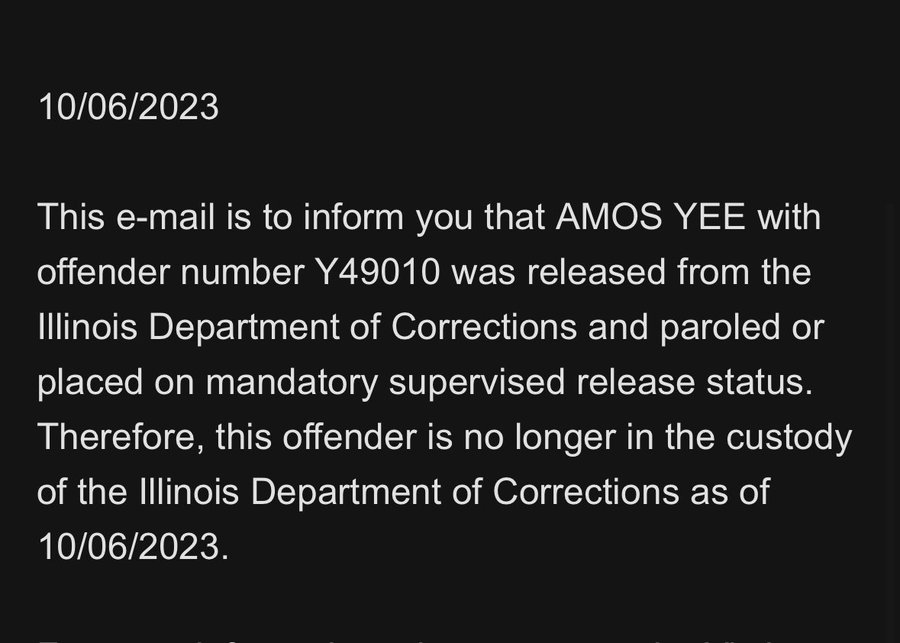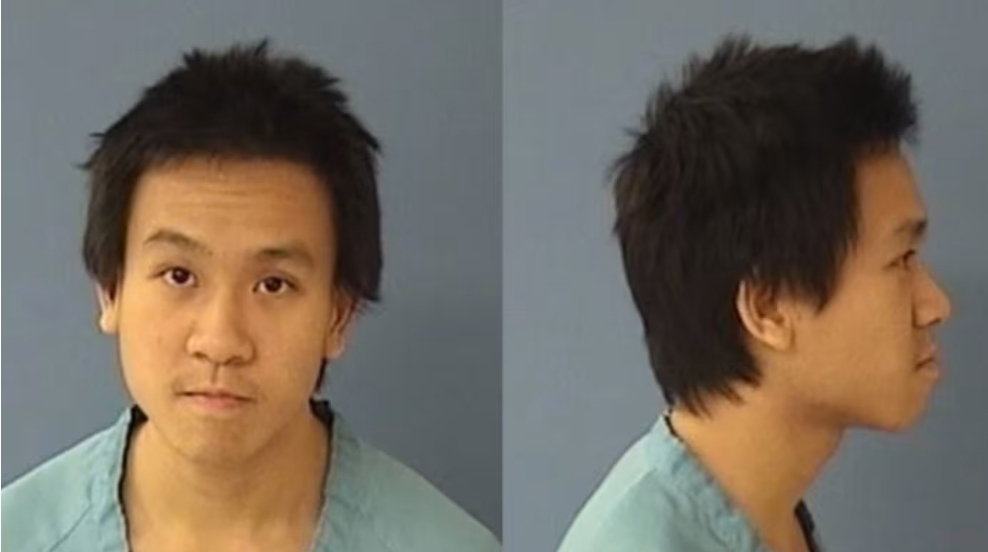SINGAPORE: Singaporean blogger Amos Yee, who was imprisoned in the United States of America for inappropriately grooming a 14-year-old girl and possessing child pornography, has been released on parole by the Illinois Department of Corrections (IDOC).
Yee was in the middle of serving his prison sentence, which was passed on 3 Dec, 2021, when he was granted parole. The IDOC website shows that his parole date was set for 6 Oct, and his projected discharge date was 8 Oct 2026. IDOC did not disclose the conditions for Yee’s parole. It is also unclear whether Yee is still under political asylum in the United States or whether he will be deported to Singapore.


Yee first gained notoriety in Singapore as a 16-year-old in 2015 for his controversial blog posts and videos in which he criticised the government and various religious figures.
He also criticised the late Mr Lee Kuan Yew in a YouTube video shortly after Lee‘s death on 23 March 2015. He was charged with offending religious feelings and obscenity, found guilty and sentenced to four weeks’ jail in May 2015.
He was again arrested and sentenced to six weeks in jail and fined $2,000 for wounding religious feelings in September 2016.
In December 2016, Yee fled Singapore and sought asylum in the United States. He was granted asylum in 2017, but his troubles with the law continued.
Yee was taken into custody in October 2020 when authorities obtained messages he had exchanged with a 14-year-old girl from Texas between April and July 2019. He shared nude photos with her via WhatsApp. Prosecutors asserted that the girl had informed Yee of her age on multiple occasions.
Yee had initially befriended the girl when he was 20 years old. The girl reported the relationship to a group of individuals interested in exposing paedophiles when their relationship deteriorated.
During his sentencing for grooming and child pornography, a judge warned Yee that he could be deported to Singapore and prohibited from re-entering the US.

